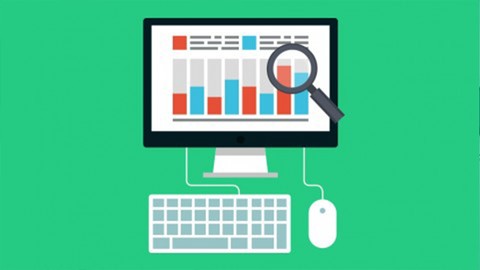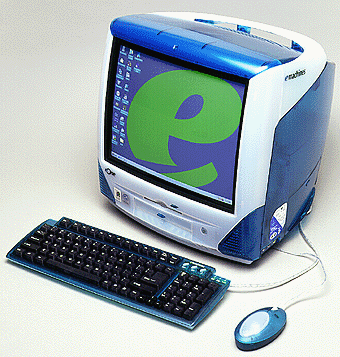As medical doctors all-around the region scramble to diagnose conditions of COVID-19, researchers at the College of California, Berkeley’s Impressive Genomics Institute (IGI) are developing from scratch a diagnostic lab with the capability to approach more than 1,000 individual samples for every working day.
This pop-up laboratory, the exertion of a special volunteer crew of academic and corporate associates, will provide desperately required testing potential in the Bay Region for those with COVID-19 indications and also assist community health and fitness officers assess how common the epidemic is.

The 2019 Novel Coronavirus (2019-nCoV), portrayed in an illustration made at the Facilities for Disease Manage and Prevention. Picture credit score: Alissa Eckert, MS Dan Higgins, MAM
“The UC Berkeley crew is racing to handle this important community health and fitness problem by developing a testing lab that will be instantly impactful in our local community, when also building info that contributes to being familiar with the spread of the SARS-CoV-2 virus,” mentioned Jennifer Doudna, professor of molecular and cell biology and of chemistry and IGI executive director. SARS-CoV-2 is the coronavirus that will cause COVID-19.
Many thanks to the emergency modification of condition and federal polices and California’s declared condition of emergency, the IGI was capable to companion with clinicians at College Well being Companies, UC Berkeley’s student health and fitness centre, and both equally area and nationwide providers to carry in the robotic and analytical equipment required, create a secure and strong pipeline for clinical sample ingestion and processing, obtain the needed regulatory approvals and train a crew of hugely experienced researchers accustomed to conducting essential investigate to assess individual swabs with a brief-turnaround goal of a lot less than 24 several hours.

A sketch of the coronavirus, dubbed SARS-CoV-2, that will cause COVID-19. The brighter blobs surrounding the virus are the “spike” proteins that give coronaviruses their identify and which let the virus to enter cells. The lighter orange blobs are other proteins embedded in the viral envelope.Picture credit score: Desiree Ho, UC Berkeley
The researchers — more than 50 volunteers from UC Berkeley, UC San Francisco and area info administration providers — program to check their first actual viral samples early this 7 days and purpose for certification beneath the Clinical Laboratory Improvement Amendments (CLIA) system by next 7 days.
While the testing lab will concentration initially on samples from pupils and other members of the UC Berkeley local community, the crew is now coordinating with health care facilities all-around the East Bay to ultimately offer you rapid turnaround to also meet their diagnostic requires.
“We mobilized a crew of proficient academic researchers, partnered with professionals from providers and pulled together, in a subject of a few days, a team that is working like a biotech organization. It is definitely a impressive tale,” mentioned Doudna, who is also a Howard Hughes Health care Institute investigator.
The lab will run testing based mostly on a approach permitted by the Food items and Drug Administration, but with increased throughput than lots of commercial labs, some of which however must run samples manually, a single at a time. The large-throughput machines, some sourced from campus investigate labs, can check more than 300 samples at as soon as and provide the diagnostic result in a lot less than four several hours from receipt of individual swabs. Applying robotics and a streamlined approach, the IGI pop-up lab will shortly conduct 1,000 exams day by day, with the capability to ramp up to three,000 exams for every working day if vital.
“We are implementing an present check in a way that leverages robotics and rapid turnaround occasions so that we can supply final results immediately to health care facilities all-around the East Bay and provide a important service to our local community in this time of require,” Doudna mentioned.
“This is just an awesome opportunity,” mentioned Male Nicolette, UC Berkeley’s assistant vice chancellor for College Well being Companies. “I am stunned at how immediately Berkeley was capable to mobilize and to get edge of the more recent rules in get to innovate more immediately. The lab aspect of factors has been so reliant on human manual operate that this would be a video game changer in a good deal of approaches.”
Given constraints on the quantity of check kits out there in California and evolving guidelines on who must be analyzed, health care personnel at UHS’s Tang Center have to day sent out only a pair of dozen swabs from pupils for testing by area commercial labs. A single was returned as constructive for the SARS-CoV-2 virus that will cause COVID-19. But according to Nicolette, turnaround in the Bay Region has various commonly and can exceed a 7 days, leaving symptomatic people and clinicians doubtful of their status, often developing stress.
He is optimistic that the on-campus diagnostic lab will let significantly wider testing that will provide a superior image of how widespread the virus is, specified that lots of people undergo delicate or no indications, however can be contagious. Massive-scale testing has been critical to the capability of other international locations to command the spread of sickness by figuring out infected individuals, he mentioned.
“There are other factors of broader testing that would be so clinically highly effective,” he mentioned. “We could make superior decisions about health and fitness, about operate, about potentially how very long we require to continue on to socially distance, based mostly on what we come across.”
The power of automation and robotics
The IGI’s scientific director for technological know-how and translation, Fyodor Urnov, played a big job in mobilizing resources — equipment, people and dollars — just after a March 13 conference of 59 people inside of the institute. The essential system required to check for a virus — isolating RNA from a sample and amplifying it making use of the polymerase chain response (PCR) — is regime in dozens of labs at most universities. The critical, Urnov mentioned, was to immediately figure out how to scale and automate the approach for clinical use.
UC Berkeley labs possessing large-throughput PCR machines donated their equipment to the result in, when IGI recognized robotic sample managing as very well as protected info administration.
“We threw our R&D (investigate and progress) mentality into being familiar with how we can scale it up and speed up it, for the reason that we understood this essential require of the health care local community,” mentioned Urnov, a professor of molecular and cell biology who spent 15 years in the biotech business before coming to UC Berkeley. “Who we are as researchers definitely related to an unmet require.”
Clinical testing of individual samples is hugely controlled, requiring CLIA certification not only of lab researchers, but of the actual laboratory place, equipment and quality command methods. While the Tang Center has two CLIA-licensed lab researchers, the centre does not have a Biosafety Level 2 (BSL2) lab needed for testing viruses like SARS-CoV-2.
Many thanks to the new polices, nonetheless, the Tang Center’s certification is being prolonged to the BSL2 lab in the IGI, and the researchers who volunteered to do the testing are now having an accelerated teaching system to be capable to work the equipment 24/seven, if vital.
Apart from fast turnaround, Urnov mentioned, the primary concentration is accuracy, anything that dogged the Facilities for Disease Manage and Prevention’s primary check kits and delayed common testing for a important thirty day period at the commencing of the epidemic in the United States.
“We have controls for our controls,” he mentioned. ”A good deal of operate has long gone into making certain that we are exact when we tell clinicians whether or not their individual is constructive or negative.”
As Urnov and his crew ramp up diagnostics, other scientists at UC Berkeley have broken into about a dozen “rapid investigate reaction teams” to concentration on other COVID-connected investigate initiatives, which include feasible enhanced diagnostics, new medication to take care of the infection and approaches to supply medication to people.
“We are speaking about a team of more than a hundred people who are actively participating in investigate initiatives, which include people from UCSF, Stanford and the Gladstone Institutes,” Doudna mentioned. “These for a longer period-phrase initiatives handle the ongoing require to realize this spouse and children of viruses and to put together for long run outbreaks now.”
Supply: UC Berkeley




